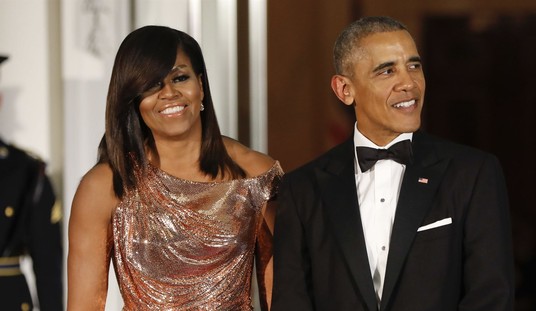Is a Jew who accuses another Jew of “cowardice” and “self-hatred” in the face of anti-Semitism thereby himself guilty of anti-Semitism?
In the strange, through-the-looking-glass world of French justice apparently he is.
The setting is yet again the Al-Dura affair and, more specifically, the legal campaign conducted by Middle East correspondent Charles Enderlin and his employer, French public television network France2, against critics who have challenged the authenticity of Enderlin’s, in the meanwhile, infamous September 2000 report depicting the Palestinian boy Mohammad Al-Dura allegedly being shot dead by Israeli forces. But whereas the three France2/Al-Dura “defamation” cases – and, most notably, the ongoing case pitting Enderlin and France2 against media critic, Philippe Karsenty – have received wide coverage in the new English-language media, a fourth, still more troubling case has passed largely unnoticed. Indeed, were it not for the indispensable reporting of Véronique Chemla of the French-language Israeli news service Guysen and the interest shown by a few Christian-themed French news outlets, the bizarre condemnation of Nicolas Ciarapica for “racial defamation” might have passed almost entirely unnoticed in the French and English-language media alike, both old and new.
Nicolas Ciarapica is an evangelical Christian and the owner of the website Blogdei. On January 8, he was summoned to appear before the 17th Chamber of the Parisian county court (Tribunal de Grande Instance): the same jurisdiction, specializing in “press-related” offenses, that has also heard the other Enderlin “defamation” cases. Unlike the defendants in the other cases, however, Ciarapica was not accused merely of having “defamed” Charles Enderlin, but rather of having “defamed” him, more exactly, inasmuch as a Jew: hence, the specific charge of what in France is known as “racial defamation.” In other words, Ciarapica stood accused of having promulgated anti-Semitic “hate speech” directed at Enderlin.
The object of the suit was an article titled “French Jews Are Completely Fed Up,” which appeared on Blogdei in February 2006. As Ciarapica explained to the court:
I try to [post articles] that are of interest for the evangelical Protestant community. Like a lot of other members of my faith, we pay attention to Israel…. Every time one starts accusing the Jews, it is a sign that there is something wrong in society. The average French person watches the television and it is always the same. He never sees a report concerning the Jews that allows him to have empathy for them. I am shocked by this. We try to engage in “re-information”: to present a different tonality. We looked for different sources of information. We found the Mena. (Source: Guysen News; link in French)
The “Mena” in question is the French-language Israel-based Metula News Agency. As so happens, it is the Mena that has undoubtedly done more than any other French-language news source to expose the contradictions surrounding France2’s original Al-Dura report and to advance the claim that the report was a fake. As consequence, France2’s and Charles Enderlin’s legal campaign against their critics in France has, in large measure, played itself out as a sort of proxy war against the Mena. This proxy-character is especially obvious in the Ciarapica case, since the litigious text comes from the Mena and was written by Mena editor in chief Stéphane Juffa. Ciarapica merely reprinted the text – or, more precisely, just its second part – on Blogdei, after it had already appeared on the Mena website. Parts one and two of “French Jews Are Completely Fed Up” [Le grand ras le bol des Français juifs] remain freely available on the Mena site (here and here).
The authorship of Juffa makes the charge of anti-Semitism even more mind-boggling. If formally it is Ciarapica, the pro-Israel Evangelical, who is accused of anti-Semitism, via him, it is none other than Juffa, the Jewish editor of the Mena, who stands accused. But what truly renders the charge a well-nigh perfect inversion of both reality and moral responsibility is not so much the identity of the article’s author as its content: for, as one could already infer from the title, “French Jews Are Completely Fed Up” consists precisely of a denunciation of anti-Semitism in France. Indeed, the immediate context for Juffa’s piece is the most heinous anti-Semitic crime in recent French history: the murder of Ilan Halimi. Halimi was the young French Jew who in early 2006 was kidnapped and then savagely tortured over a period of three weeks by a gang from Bagneux in the Parisian banlieues. Interrogated by the police, members of the gang – appropriately enough called the “Barbarians” – made no secret of the anti-Semitic prejudice that animated the group.
In the first part of “French Jews Are Completely Fed Up”, Stéphane Juffa connects the open anti-Semitism of Ilan Halimi’s tormentors to the distorted representation of the Israeli-Palestinian conflict in the French media and, in particular, to Charles Enderlin’s Al-Dura report on France2. “Is it so hard to understand,” he writes,
that the Islamist-wannabe thugs of Bagneux imagined that in torturing to death Ilan Halimi, they were avenging, among others, the “martyrdom” of little Mohammed Al-Dura, which was staged by Talal Abu-Rahma with commentary by Enderlin and broadcast for free in France and to the four corners of the globe by [the French public broadcasting company] France Télévisions.
In part two, Juffa connects the distortions of the French media in turn to France’s traditionally pro-Arab Middle East policy: commonly known as “la politique arabe de la France” or “French Arab Policy.” He then returns to the question of the consequences for French Jews: offering a typology of different ways that French Jews respond to the anti-Semitism in their environment. The passage is worth translating at some length: both for its own sake and so that the reader – apparently unlike Nicolas Bonnal, the presiding judge in the Ciarapica case – can appreciate the context of the passage that the Parisian court would judge to be anti-Semitic. Enderlin’s name appears amidst a list of several French Jewish journalists, all of whom are accused by Juffa of having incited anti-Jewish hatred through false or tendentious reporting.
Let us come back to the Jews and to the methods that they have developed in order to be able to withstand the way that others look at them: a look that is full of disapproval and criticism, because of the inhuman oppression that the Palestinians suffer at the hands of Israel – if the journalists who have graduated with degrees in “French Arab Policy” are to be believed.
I have been able to detect four different ways of confronting the accusation of being what they are: an accusation that makes them responsible for events over which they have no control and even events that have not taken place. It is a reproach that makes use of the services of various journalists specially selected for their Judeophobia in order to become the norm: journalists of the extreme right and of the extreme left, extremely ambitious or extremely demented. It is a reproach, in any case, that has become more and more durable and that weighs ever more heavily in the day-to-day life of French Jews.
The first sort, the most numerous, try to be inconspicuous, to be as little Jewish as possible: pretending not to hear the hushed murmurs of disapproval that follow their steps. The second are the Jews who are proud of being Jewish: the resisters, the activists. They are always prepared to speak up – with greater or lesser precision and talent – about what they know of their homespun reality: one against a thousand and in the face of the snickering of their fellow citizens, who are certain of the certitudes that they see on the television and read in Le Monde. But this sort is never capable of affecting to any considerable degree the frightfully powerful current of opinion that comes from the mass media.
The third are the most cowardly: mixing hatred of themselves and of their origins. They rush to provide in advance the self-criticism that is expected of them: not hesitating to impute to their brothers ritual murders of their own contrivance that come straight out of the Tsarist cabals or Nazi propaganda. There is, for example, for Sara Daniel, the systematic rape of young Palestinian girls by soldiers of the Israeli army aiming to get the girls executed by their families; or, for Edgar Morin-Nahum, the atavistic sadism [of Israelis] and the tendency to murder the weak, the non-Jews; or, for Sylvain Cypel [of Le Monde], espionage and the tendency to treachery – an updated version of the accusations made against Alfred Dreyfuss; or, for Dominique Vidal [of the monthly Le Monde Diplomatique], the Jewish international conspiracy – which is reborn from the ashes every time anti-Semitism is in need of arguments; and, finally, the sadistic assassination of non-Jewish children, for that veritable pyromaniac of war Charles Enderlin.*
The fourth type, Juffa goes on to explain, are those who respond to French anti-Semitism… by immigrating to Israel.
On February 12, the court found Nicolas Ciarapica guilty of having “racially defamed” Charles Enderlin and required him to pay a symbolic 1 euro in damages and another €1000 in court costs. In addition, Ciarapica has been required to publicize the judgment on his website for two months. Visitors to Blogdei are currently greeted on the homepage and indeed all pages by a boxed message in all capital letters that reads: “NICOLAS CIARAPICA, THE DIRECTOR OF THIS PUBLICATION, HAS BEEN FOUND GUILTY OF RACIAL OR RELIGIOUS DEFAMATION WITH REGARDS TO CHARLES ENDERLIN.” When one clicks on the box, a window opens up containing a somewhat longer message, which specifies that Ciarapica’s offense was to have insulted Enderlin “by virtue of his belonging to the Jewish community.” Nicolas Ciarapica has thus been obliged by the court to wear a sort of electronic scarlet letter, clearly branding him as an anti-Semite. The message conveyed by France’s protectors of public morals in applying such a punishment might best be parsed as follows: Woe be unto him who accuses France’s state-owned media of encouraging anti-Semitism, lest he himself be ruled an anti-Semite….
*A grammatical anomaly in the French original of this passage should be pointed out here. Juffa writes “pour Sara Daniel,” “pour Edgar Morin-Nahum,” “pour Sylvain Cypel”: i.e. “for” Sara Daniel, “for” Edgar Morin-Nahum, etc. In the phrase concerning Enderlin, however, he writes “par” Charles Enderlin: which would ordinarily mean “by” Charles Enderlin. This is presumably just a slip provoked by the complicated grammar of the sentence. Contrary to what is astonishingly claimed in a brief French-language dispatch on the Ciarapica judgment from the AFP, it is abundantly obvious from the remainder of the passage – or even just from a minimal acquaintance with the Al-Dura affair – that Juffa is not, of course, accusing Enderlin of “sadistically assassinating non-Jewish children.” Rather, he is accusing Enderlin precisely of having imputed such an atrocity – i.e. the killing of Muhammad Al-Dura – to other Jews.
John Rosenthal is a contributing editor for World Politics Review.









Join the conversation as a VIP Member